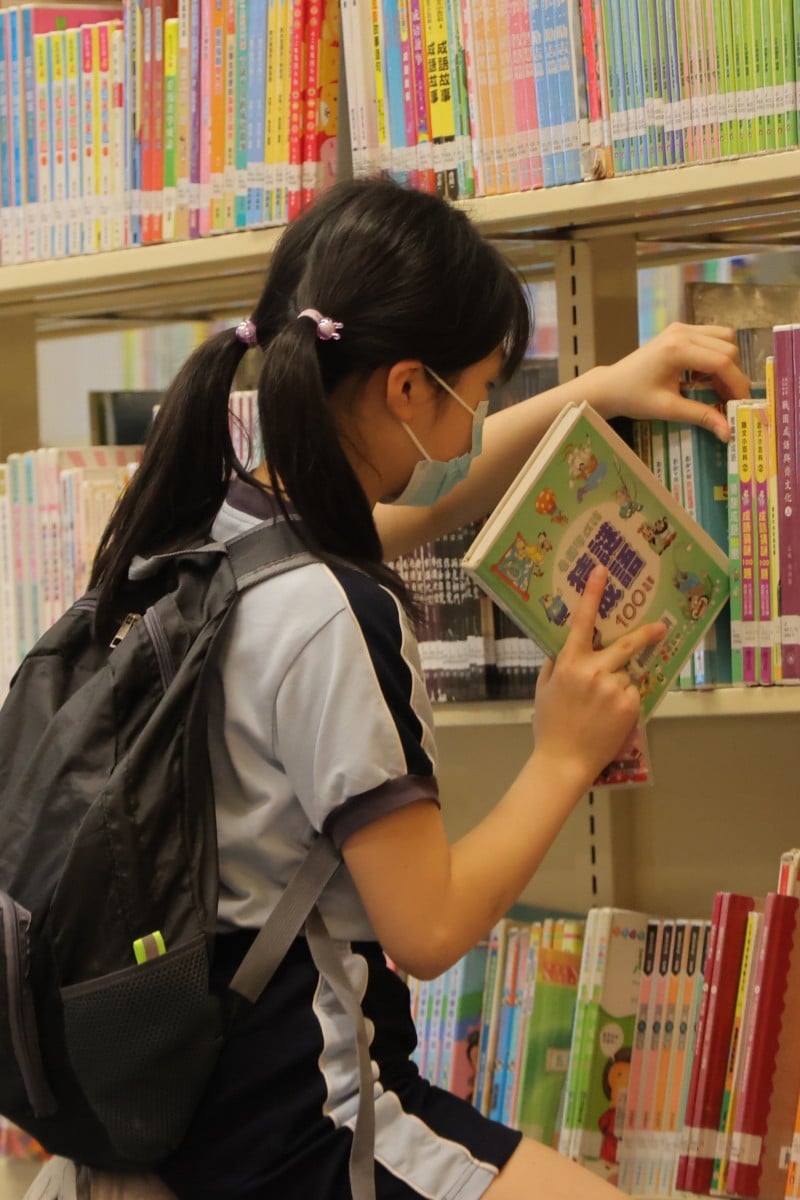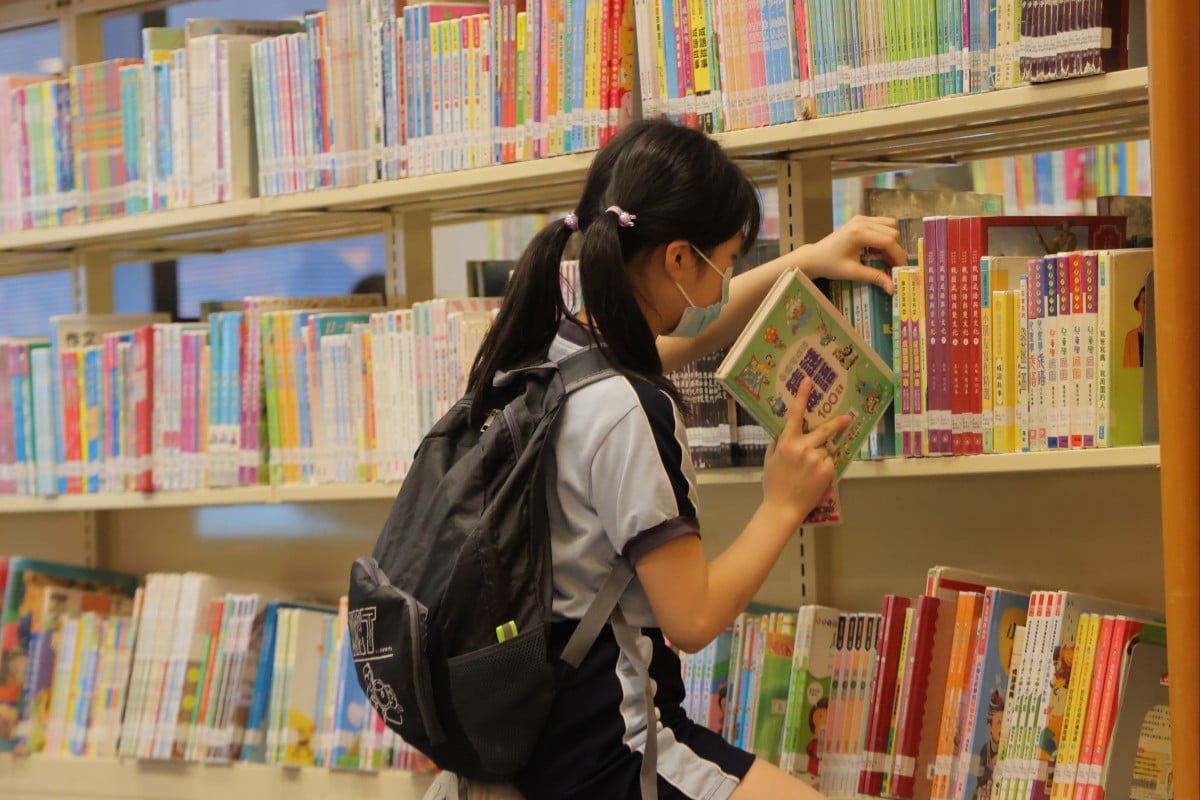
Face Off: Should libraries remove controversial books?
- Each week, two readers debate a hot topic in a showdown that doesn’t necessarily reflect their personal viewpoints
- This round, they argue if pulling politically sensitive titles from public libraries’ shelves is beneficial for society
 In recent months, Hong Kong public libraries have been ramping up their removal of politically sensitive books from shelves. Photo: Jelly Tse
In recent months, Hong Kong public libraries have been ramping up their removal of politically sensitive books from shelves. Photo: Jelly TseIf you are interested in joining future Face Off debates, fill out this form to submit your application.
For: Removing sensitive titles promotes correct values
Louis So, 17, CNEC Lee I Yao Memorial Secondary School
Books are crucial for imparting the spices of wisdom and knowledge that add flavour and colour to readers’ minds. However, if the spice of certain books is too strong, it might not be beneficial for citizens.
Removing controversial books from Hong Kong’s public libraries is important for teaching proper values.
Even the famous ancient Greek philosopher Socrates was put on trial and condemned for corrupting the minds of youth, so books should not be exempt from censorship.
Individualism, which values individual choice and action over the group, is a controversial topic. However, this way of thinking ignores people’s responsibilities to the wider society in favour of their individual rights. When it comes to books that are available in a public library, it is more important to prioritise what is good for society.
How removal of sensitive books from Hong Kong public libraries affects students
Some authors may write books that have harmful biases. It is better for libraries to keep these off the shelves to steer citizens away from learning these ideas. The remaining selection of qualified books should be enough to help readers digest stories and teachings from other great minds. Thus, citizens can be educated with the right moral lessons. After all, proper reading spurs proper thinking.
For example, some schools in the US have successfully banned The Catcher in the Rye, a novel published in 1951 by American author J.D. Salinger. The ban was because of the book’s sexual content, profanity and anti-Christian statements. Even though it might be a good book for critical readers, those schools did not want to risk exposing impressionable younger readers to this content. What if students, after reading the book, followed the protagonist’s reckless actions?
Thus, it makes sense for authorities to ban books that could potentially poison the minds of readers who are not critical enough to judge the content. They would not want a few rotten apples to spoil the whole barrel of literature that can enrich the mind.
When curiosity sets in, most people want to explore more. However, is it truly better for citizens to wade in a sea without any boundaries? Though we may never be completely certain about the answer to this, I do believe we need boundaries in our reading and education.
Against: Libraries shouldn’t limit our exposure to diverse views
Heer Donda, 13, King George V School
Libraries are an integral part of a child’s life. Books not only open up their imaginations, but also shape their understanding of different viewpoints on the world.
Public libraries ensure that every student has equal access to resources. Taking away certain books would limit their exposure to different views on the reality of this world and restrict their ability to form their own perspectives. Underprivileged children already face barriers to learning, so why should they be limited even further in their access to knowledge?
Furthermore, it is unconscionable to ban books simply because they may be controversial. These books can facilitate open debate, challenge biased notions and promote critical thinking. Debate and discussion also improve our ability to cooperate and resolve conflict.
It can be argued that libraries must use discernment in deciding which books to include on their limited shelves, but this does not mean they should take away books that discuss globally relevant issues.
8 books that have been banned or challenged around the world
Moreover, banning these books could be a form of censorship. Individuals should be able to make their own decisions on which books they would like to read. They should have the right to decide the information they can access. According to Article 19 of the UN’s Universal Declaration of Human Rights, everyone holds the right “to seek, receive and impart information and ideas through any media”.
Everyone does not have to read the book, so what is the problem with letting it sit on the shelves?
Finally, parents can control the books their children read, but this does not give them the right to control what everyone else can read. Libraries already select books that are likely to appeal to the interests of their visitors, so all books in a library were likely chosen with a reason and purpose in mind.
Stepping into a library is entering another world containing the words of many passionate authors. People look to libraries for information they need. But taking away controversial books is wrong because it limits people’s exposure to many viewpoints and there must have been a reason for including it in a library to begin with. Ultimately, libraries should follow the interests of their diverse visitors and ensure that every reader has access to the resources they seek.
